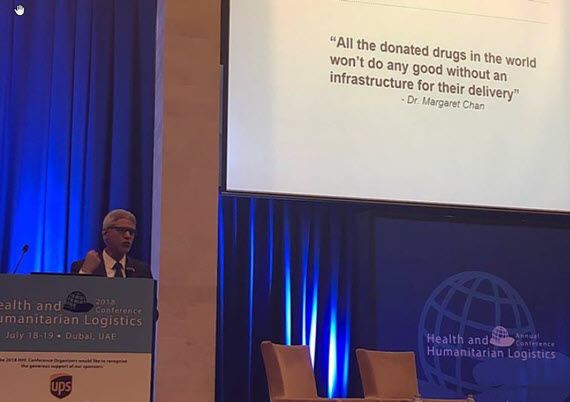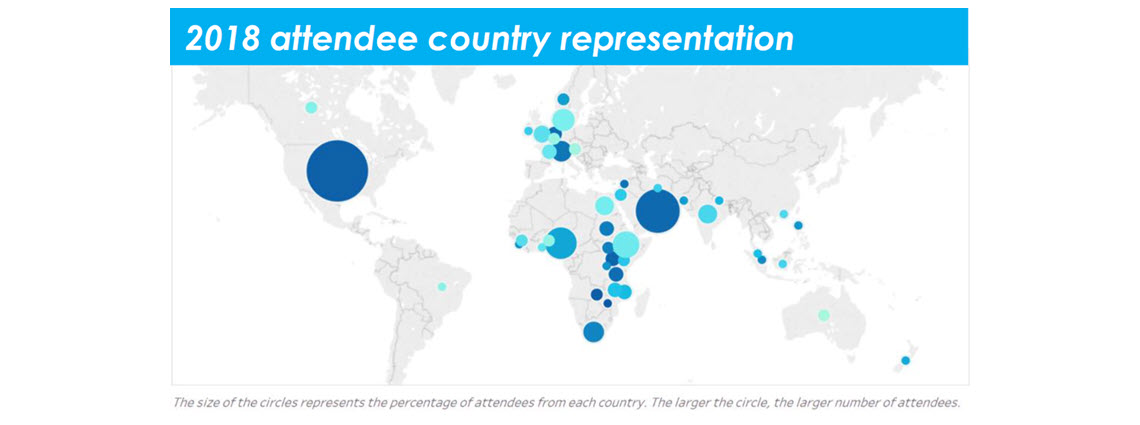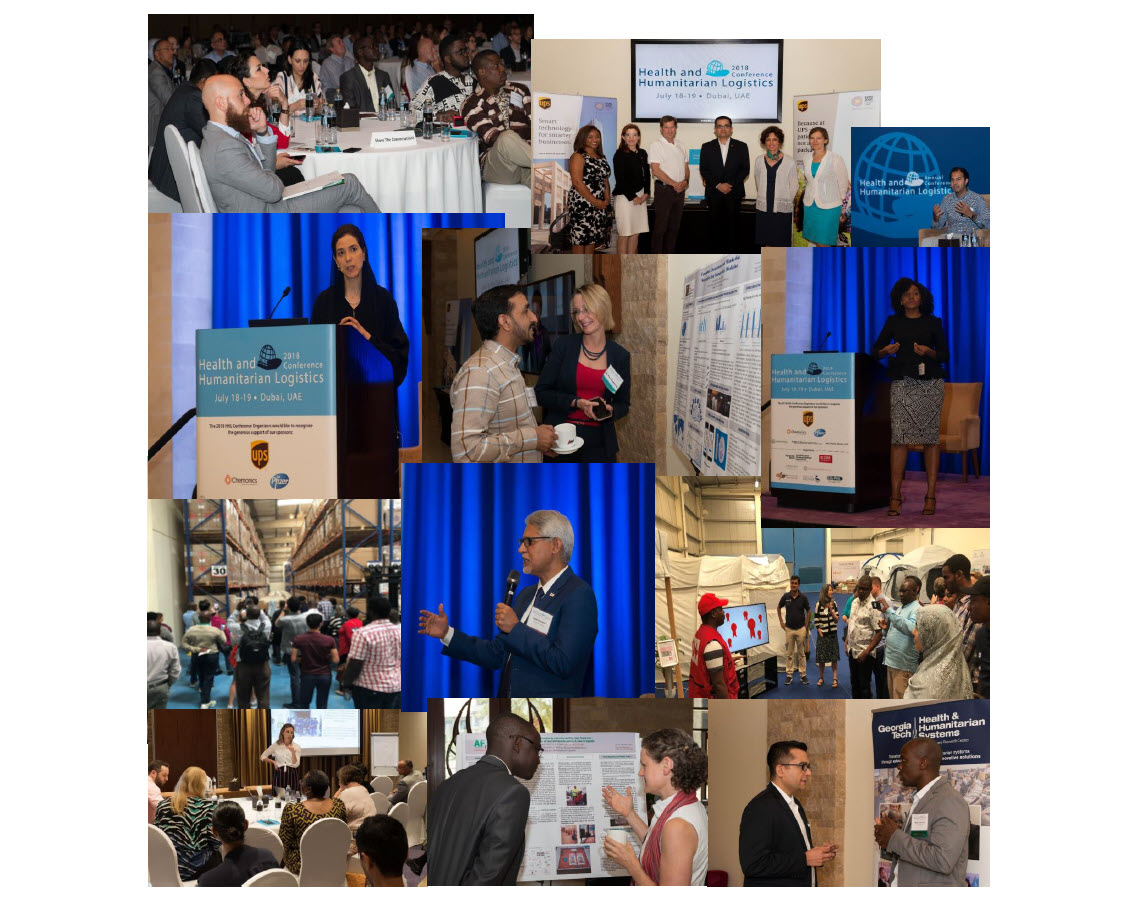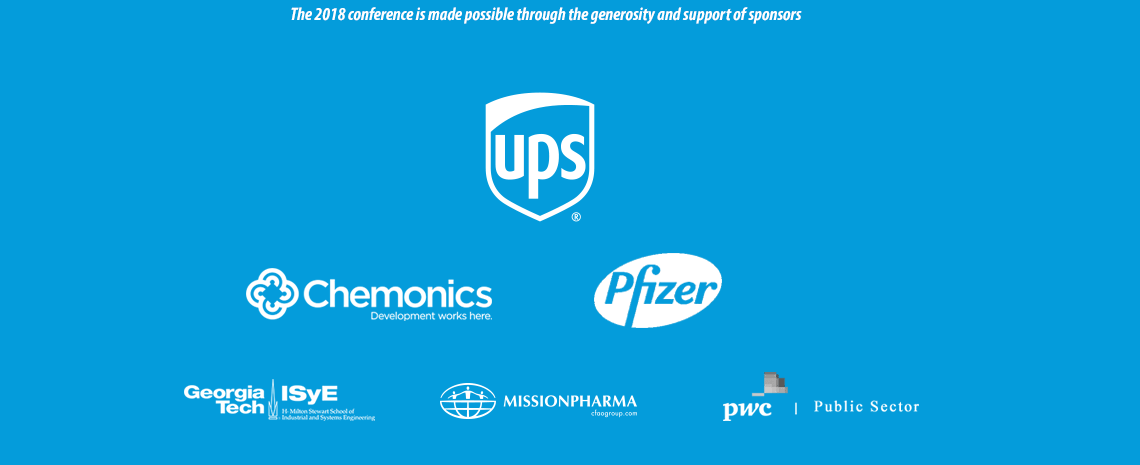Highlights from 2018 Event
2018 Health & Humanitarian Logistics Conference in Dubai marks the milestone for the 10th year of a continued legacy of sparking communication and collaboration to share solutions and improve lives!

The challenges of meeting fundamental human needs and responding to emergencies have been continuing and growing at a fast pace. Healthcare is in the forefront for many countries, with a wide range of focus areas including communicable and non-communicable diseases, health systems strengthening, disease prevention, and nutrition. Health emergencies, such as the Ebola outbreak and the ongoing Zika challenge, as well as natural and man-made disasters have impacted numerous communities around the world. These challenges disproportionally impact low income or vulnerable populations, complicating ongoing development needs in health, nutrition, education, and other key areas. Whether we face an emergency or a long term development challenge, there are often many actors who play a role, limited resources available, as well as variability, uncertainly, and potential disruptions in the demand and supply chains. All of these factors highlight the importance of logistics and supply chain management in these contexts.
In light of these grand challenges, the Conference on Health & Humanitarian Logistics provides an open forum to discuss new solutions in health systems, disaster preparedness and response, and long-term development. The conference offers a unique platform for participants to discuss challenges, share best practices, and explore potential collaborations, with the goal of enhancing efficiency and effectiveness in health and humanitarian systems, and ultimately improving and saving lives around the world.
 2018 Keynote speaker Jagan Chapagain, Under-Secretary-General for Programmes and Operation for the International Federation of Red Cross and Red Crescent Societies (IFRC), emphasized that “Strong health systems help prevent humanitarian crises. They provide a basis for early interventions so that quick action can be taken to stop the spread of epidemics and also help reduce the impact of non-communicable diseases. At the same time humanitarian issues could provide the necessary resources and impetus to strengthen the health systems in the countries affected by crises. Each approach reinforces the other.”
2018 Keynote speaker Jagan Chapagain, Under-Secretary-General for Programmes and Operation for the International Federation of Red Cross and Red Crescent Societies (IFRC), emphasized that “Strong health systems help prevent humanitarian crises. They provide a basis for early interventions so that quick action can be taken to stop the spread of epidemics and also help reduce the impact of non-communicable diseases. At the same time humanitarian issues could provide the necessary resources and impetus to strengthen the health systems in the countries affected by crises. Each approach reinforces the other.”
Since its inception 10 years ago, the conference has hosted participants from 73 countries around the world in locations such as the United States, Germany, Malaysia, Mexico, South Africa, and Denmark. This year’s conference took place July 18-19, in Dubai, United Arab Emirates, drawing nearly 200 attendees from 44 countries and 122 organizations, including world leaders in the health and humanitarian sectors, current and former ministers of health, representatives from governmental and non-governmental organizations, industry, foundations, and academia.
This year’s conference was made possible thanks to the generous sponsorship from key partners such as the UPS Foundation, the premiere sponsor for the 10th year, Pfizer, Chemonics, Missionpharma, PricewaterhouseCoopers LLP, Georgia Tech School of Industrial and Systems Engineering, and NC State.
The agenda featured 4 Plenary Panels focused on: 1) Global Strategies: Planning & Responding to Public Health Emergencies; 2) Public Health System Strengthening; 3) Technology & Data Innovation for Collaboration & Coordination across Sectors and 4) The Refugee Crisis - Facing Challenges. The multifaceted program also included 48 break-out presentation and workshop sessions led by practitioners and thought leaders on current challenges and solutions in health and humanitarian logistics. In addition, participants attended warehouse/facility tours to at the International Humanitarian City, with a unique opportunity to connect conference discussions to real life operations.
Through group discussions and interactive poster sessions, covering a broad set of topics and applications, participants had ample opportunity for networking and discussions around new opportunities and implementations.

Active on Twitter (#2018HHLConf) during and after the event, participants shared thoughts and reflections. Participants praised the conference and its organizers “I really enjoyed attending, made a lot of excellent connections, and felt like it was 100% worthwhile. I really look forward to attending again next year.” –Tenly Snow Open LMIS Community Manager
Center for Health and Humanitarian Systems (CHHS) at Georgia Tech carried the torch in kick-starting and organizing the conference during its first three years; partner organizations, including INSEAD, MIT Humanitarian Response Lab, 2018 attendee country representation. Northeastern University, and NC State, joined as co-organizers over the past seven years. The 2018 organizing team also included People that Deliver and the International Association of Public Health Logisticians. With overwhelming support from our delegates, we look forward to continually serving as a platform that springboards collaboration and change for the communities they serve.
Keynote and plenary presentations and links to available video can be found at https://chhs.gatech.edu/conference/2018/program.

About the Conference Series
The Health & Humanitarian Conference series is organized each year by the Center for Health & Humanitarian Systems (CHHS) at Georgia Tech in partnership with INSEAD, MIT, and Northeastern University, with generous support from corporate and other organizational sponsors.
Stay Connected on:
Contact
- humlogconf (@) gatech.edu
- 755 Ferst Drive, Atlanta, GA 30332









